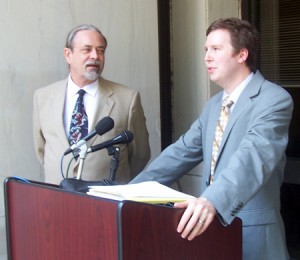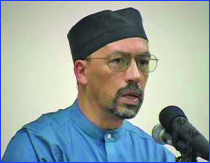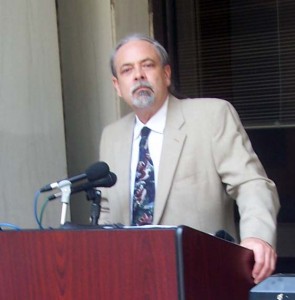By Brett Bursey
Director, SC Progressive Network
South Carolina is on the edge of blowing a unique opportunity to be number one in something good, for a change.
Ours is the only state in the nation that
* owns all the educational broadcasting licenses the FCC has issued to that state;
* has a statewide, unified system; and
* supports its entire educational broadcasting infrastructure with state tax dollars.
When the FCC mandated the switch to digital broadcasting, it opened the door for South Carolina to own — or lease to private companies — the nation’s only public, statewide wireless Internet system.
On Aug. 5, a legislative subcommittee will hear testimony on the terms of a contract to lease all of the state’s educational broadband capacity to two private companies. The SC Progressive Network has been urging the state to retain control of 25% of the spectrum for public use.
“Throughout telecommunications history, policy-makers have routinely under-estimated the utility of the public airwaves,” said Sascha Meinrath, Director of New America Foundation’s Open Technology Initiative, who will testify at the hearing. “South Carolina has a once-in-a-generation opportunity to deploy affordable broadband for all residents. It would be a shame for the State to squander such a valuable spectrum asset for pennies on the dollar. This is an issue of prioritizing long-term progress over short-term gain.”
With a clear plan and the political will, we can use the licenses and infrastructure we already own to address big problems. It’s a relatively small investment that would yield long-term rewards for education, job growth and innovative health care delivery. We are now spending millions of public dollars through hundreds of individual leases with private providers to local governments and public institutions.
Until relatively recently, electricity was considered a luxury. When electricity wasn’t reaching homes in rural South Carolina, co-ops were created as publicly owned utilities to power areas it wasn’t profitable for corporations to serve.
Internet access remains a luxury not available everywhere. Geography and income often determine whether your neighborhood has access. (A 2008 Census report found that only 39% of SC households do.) The current contract only requires the companies to provide minimal service in unserved and under-served areas.
It will take time and money to build our broadband access across the state. But it can be done over time. One WiMAX unit can serve a 10-mile radius with robust broadband for less than $100,000. Richland County is spending $300,000 annually on Internet service, and USC just signed a $840,000 annual contract with AT&T for a campus Wifi system. A public WiMAX/Wifi system for the entire county could be paid for by what USC will spend in several years. The public would own the system and it would cost a fraction to maintain.
If the contract leases out all the available spectrum to private companies for the next 30 years, much of South Carolina will remain in the digital dark, with public institutions across the state paying high rent for decades to come.
Unfortunately, the commission operated mostly in executive session, and the contract is still secret. The Commission was mandated to consider “the costs and benefits, both monetary and societal, that would be borne by or inure to the public at large, as well as the public to be served.” If the contracts are approved as written, it will have failed.
Robert Rini, a DC attorney who specializes in FCC law, was hired by the commission to help draw up the contracts. In November he recommended that the state should retain control of 25% of the spectrum for public use and that this would “not appreciably” reduce the value of the remaining 75%. The commission ignored his advice.
The commission never did a cost-benefit analysis of the public retaining control over 25% of the state-owned spectrum. The $35 million the current leases will bring in over the next 30 years, divided by 46 counties, comes to about $25,000 per county.
Not on the table when the commission crafted its contracts is the $7 billion in federal stimulus grants for broadband development. Experts around the country are mystified that South Carolina didn’t propose a coordinated state plan to apply for a grant to fund a statewide broadband service.
Each state has been assured of at least one grant. For likely much less than the total of all the local grants submitted, we could have had a winning proposal for a statewide public system that would be the envy of 49 other states. It’s not too late. If we retain control of the spectrum the contract intends to lease out, we can use the value of the licenses and spectrum for the 80-20% state matching funds for the next two rounds of stimulus grants.
The Joint Bond Review Board subcommittee — which includes Sen. Glenn McConnell, Sen. Harvey Peeler, Rep. Dan Cooper and Rep. Gilda Cobb-Hunter — now has the chance to order a study on the benefits of public ownership of 25% of the educational broadband spectrum and make an informed decision that takes South Carolina’s long term public interest to heart.



